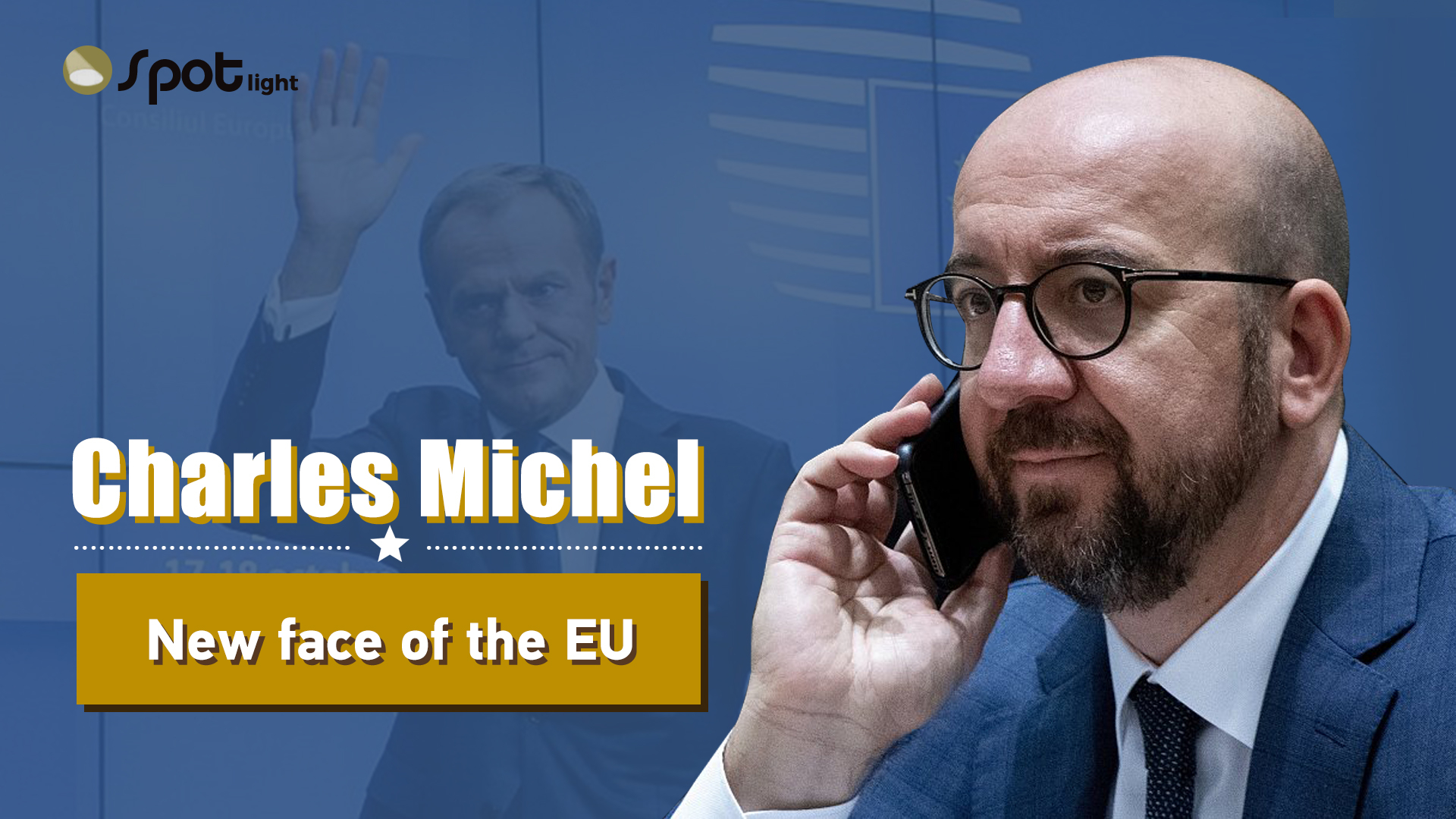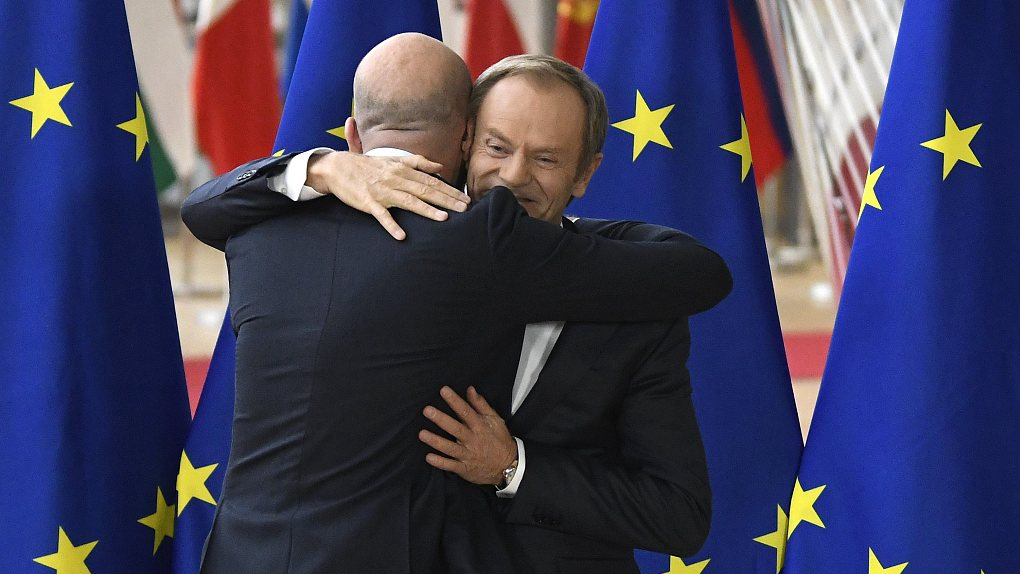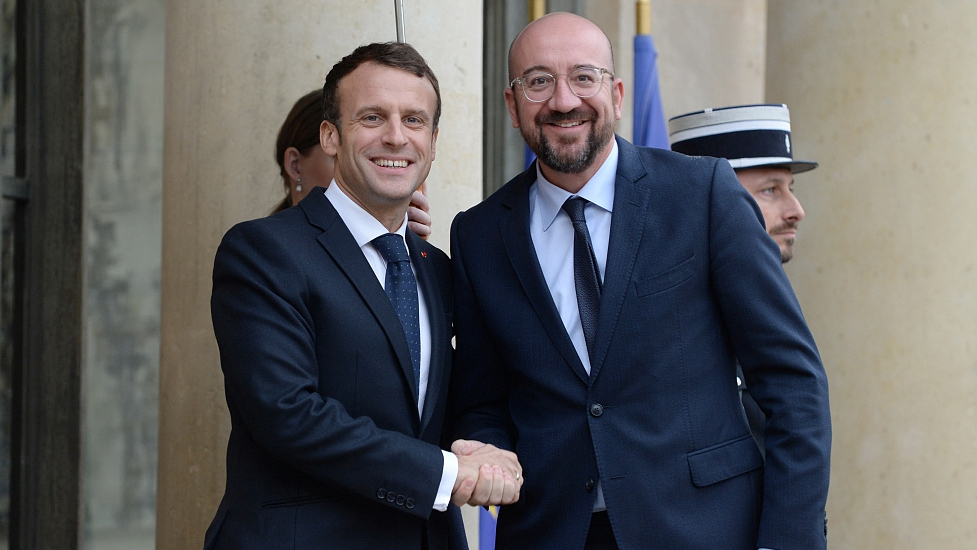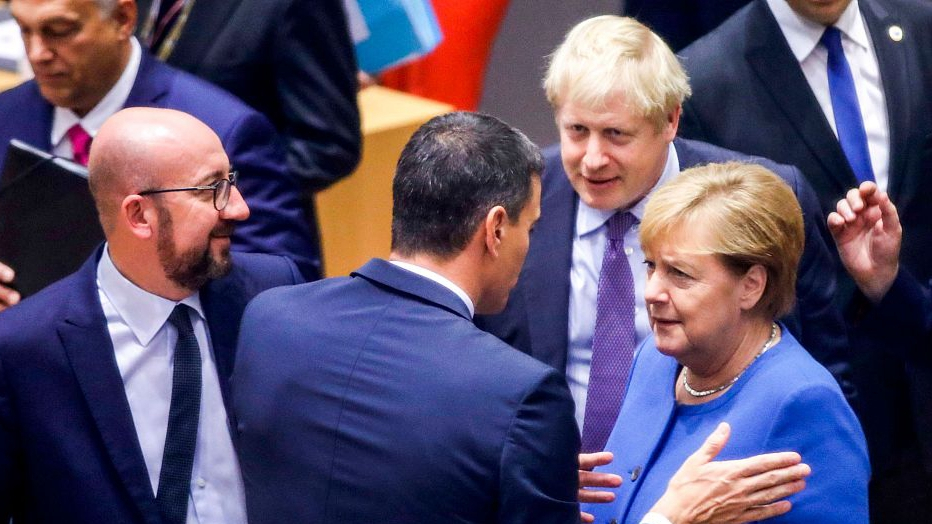
The European Union guard is changing.
Britain is at the exit door; Western Balkan countries are inching, very slowly, along the accession path.
Powerful figures, such as German Chancellor Angela Merkel, will soon leave the stage.
Big players like French President Emmanuel Macron are pushing harder for major reforms.
And in Brussels, after the fresh European Commission, headed by Ursula von der Leyen, was approved by the European Parliament this week, another new "face of the EU" is taking office.
Read more:
The legacy of Tusk and Juncker
Who is Ursula Von der Leyen?
Goodbye Donald Tusk, hello Charles Michel.
Michel, the former Belgian prime minister, officially takes the reins as president of the European Council on Sunday.
The 43-year-old will chair meetings of member states' leaders and represent the EU on foreign policy matters, with new High Representative Josep Borrell, and, alongside von der Leyen, at international summits.
The power of the Council presidency lies more in influence than decision-making – von der Leyen has more levers to pull as Commission president – but Michel, the second Belgian after Herman Van Rompuy to take a role established in 2009, will be in a key position at a critical time for the European bloc.

Charles Michel and Donald Tusk take part in a ceremonial European Council presidency handover event in Brussels, Belgium, November 29, 2019. /VCG Photo
Charles Michel and Donald Tusk take part in a ceremonial European Council presidency handover event in Brussels, Belgium, November 29, 2019. /VCG Photo
Tusk, the former Polish prime minister who shared the spotlight with Jean-Claude Juncker as EU representatives on the world stage, had a reputation for pragmatism but was a sometimes headline-grabbing performer as the Brexit drama dragged on and on in his second term.
And he will not be stepping away from the EU project, having been elected leader of the bloc's main conservative grouping, the European People's Party. His straight-talking – and straight-tweeting – became a regular feature of the numerous summits he presided over, as Brexit and migration led to EU leaders meeting far more regularly than it past years.
At a handover ceremony on Friday, Michel said he was "committed to building bridges" but joked "perhaps, I will be more cautious with my tweets, at least at the beginning."
Judging by his past record as youthful leader of Belgium, this looks to be the approach he will take to the job: A consensus builder.

French President Emmanuel Macron welcomes Charles Michel to the Elysee Palace in Paris, France, November 15, 2019. /VCG Photo
French President Emmanuel Macron welcomes Charles Michel to the Elysee Palace in Paris, France, November 15, 2019. /VCG Photo
The son of a former European Commissioner trained as a lawyer, won his first regional election aged just 18, and was chairman of the French-speaking Liberal party and a minister by his mid-twenties.
The Francophone became prime minister in 2014 at the age of 38, and oversaw a four-way coalition in Belgium's famously complex political system until December 2018.
The coalition collapsed when the Flemish nationalist party quit over Michel's backing for a UN migration agreement, and he remained in office first as head of a minority government and then as caretaker prime minister fresh elections in 2019.
The Belgian government must represent both French and Flemish speakers, making compromises necessary and regularly leading to political deadlock. The country was without a government for 352 days after the 2010 election.
Holding together different sides and forging compromises is also key to the role of the president of the Council, negotiating with national leaders from 28 (at present) countries on decisions that sometimes require unanimity. "Many people say Belgium is a mini-Europe," Michel noted in an interview with European newspapers this week.
Standing above the fray and not appearing too close to any side is important, though comments from Macron about Michel indicate the French president believes he's found an ally.
"Michel is a real European, moreover coming from a member country of the eurozone and the Schengen zone," Macron said in July, according to euractiv, describing the then Belgium PM as "a leader who will be able to assume new formats." Michel stressed to reporters this week that it was Merkel, not Macron, who first suggested he should consider the Council presidency.

German Chancellor Angela Merkel (R), British Prime Minister Boris Johnson (2nd R), Spanish Prime Minister Pedro Sanchez (C) and then Belgian Prime Minister Charles Michel (L) speak at a European Union summit in Brussels, Belgium, October 17, 2019. /VCG Photo
German Chancellor Angela Merkel (R), British Prime Minister Boris Johnson (2nd R), Spanish Prime Minister Pedro Sanchez (C) and then Belgian Prime Minister Charles Michel (L) speak at a European Union summit in Brussels, Belgium, October 17, 2019. /VCG Photo
Michel's first set-piece test will come with an EU summit on December 12-13, two days which will see Britons vote and the results revealed.
The UK election will have a major bearing on Michel and von der Leyen's starts: A majority for Boris Johnson's Conservatives and the first stage of Brexit will be close to completion; any other result, and the possibility of a second referendum and a request for further delay will increase.
If Johnson does win a majority, as polls currently suggest he is well-placed to do, Britain could be out of the bloc within weeks and a negotiating sprint would begin to strike a trade deal by the end of 2020.
Holding the member states together on a deal struck in record time would be a major test for Michel. "We are ready, we know what the most important principles are we want to defend and promote in the next phase," Michel told reporters this week.
In that interview he also struck a friendlier tone towards the U.S. than Tusk or Juncker, declaring that Brussels and Washington shared "the same goals" while noting splits on Iran and climate change and warning that the EU risked being "collateral damage" in the Sino-U.S. trade war.
Many changes are in motion in the EU, but will the way the bloc operates or approaches external affairs really alter? If it does, Michel appears more likely to be a supporting figure as a bridge-builder, holding things together, than a driver of reform.